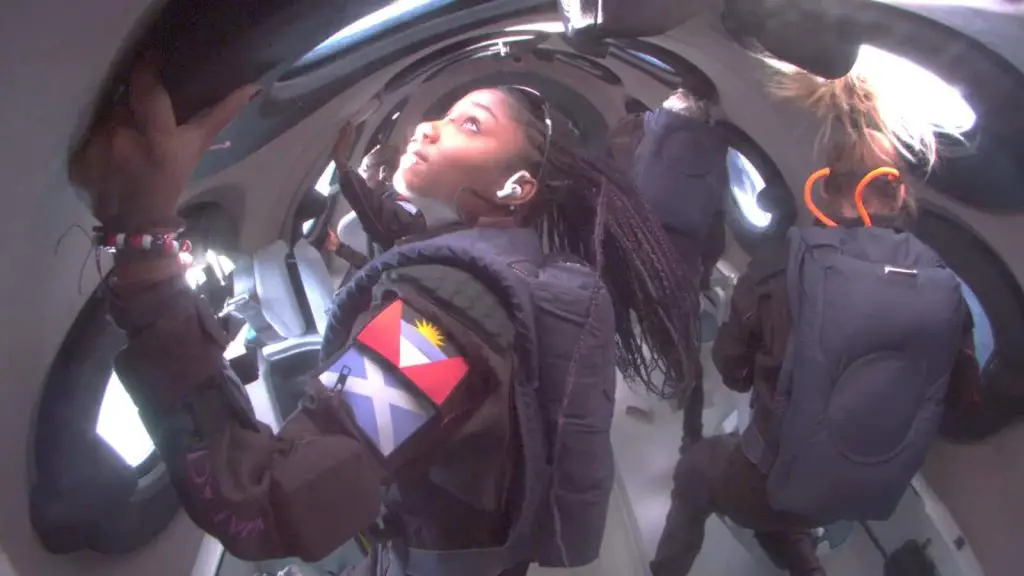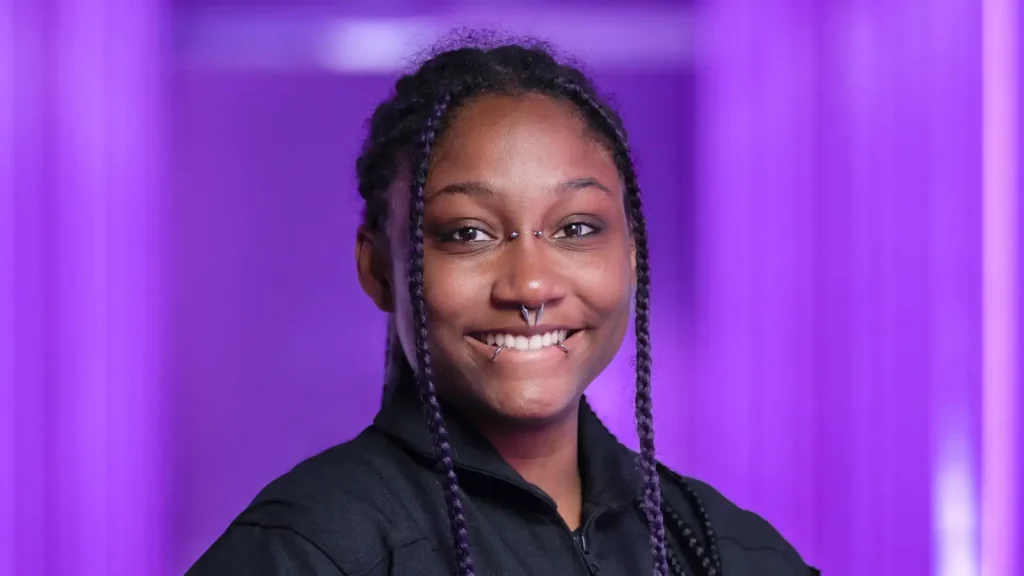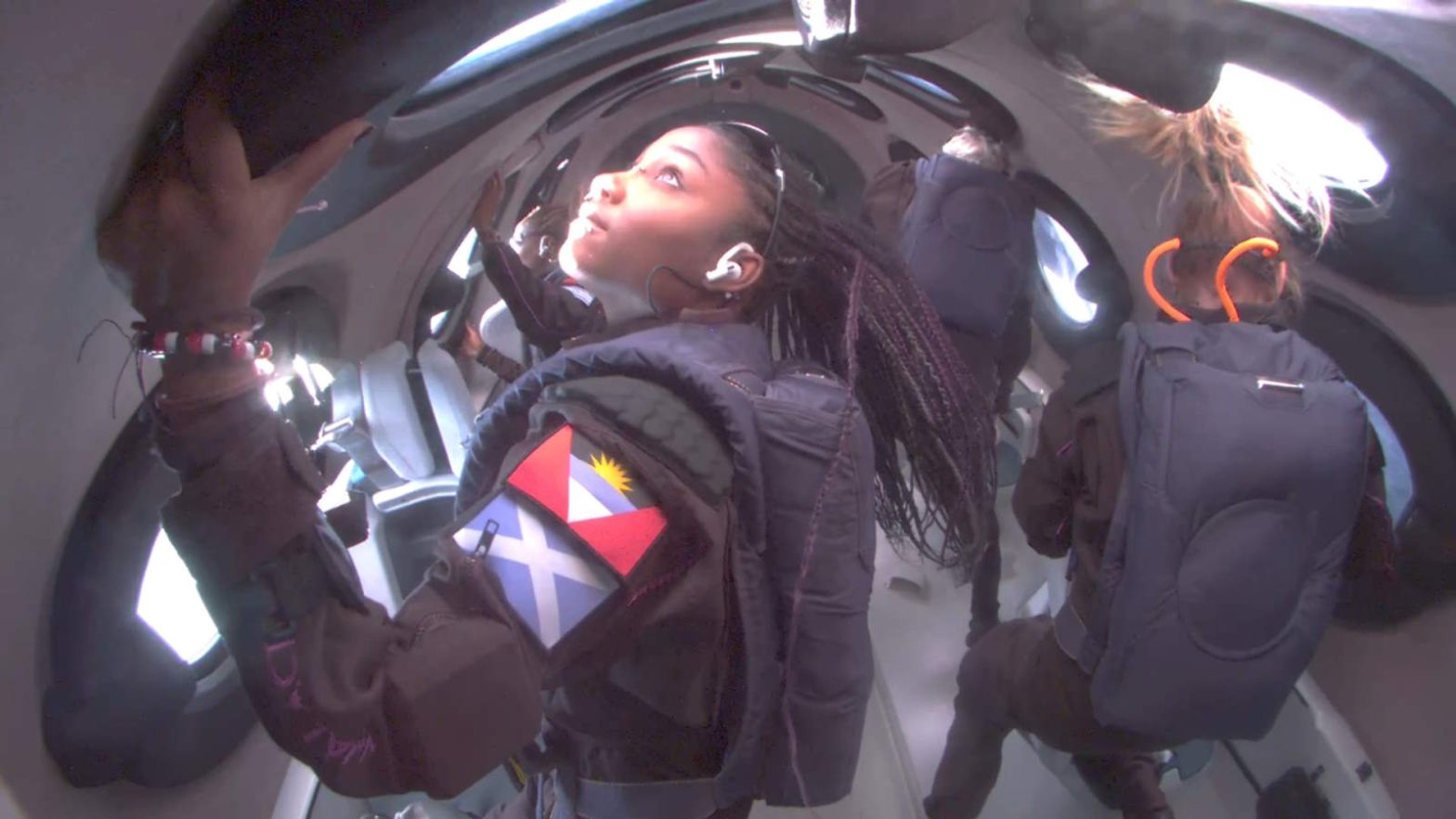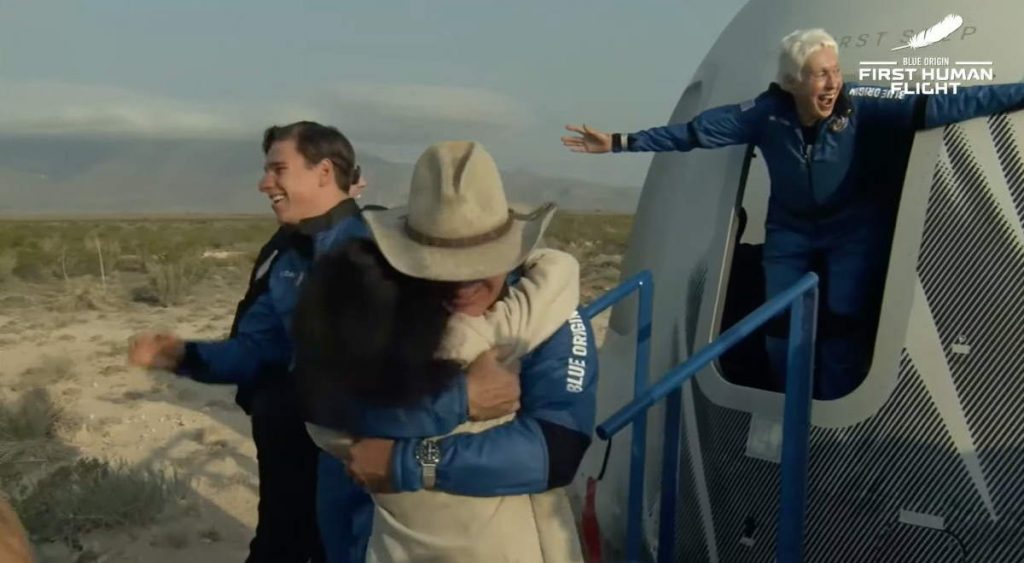Anastatia Mayers, an 18-year-old philosophy and physics student from Aberdeen University, made history as the youngest person to travel to space. Her extraordinary journey aboard Virgin Galactic’s Galactic 02 (G02) flight on August 10, 2023, not only set a record for youth but also marked a significant milestone in space tourism.
Today’s (August 23) story of what happened this day in Science, Technology, Astronomy, and Space Exploration history.
Anastatia Mayers: the youngest person to go to space
Born in 2004 in Antigua and Barbuda, Anastatia, alongside her mother Keisha Schahaff, became the first citizens from their country and the first mother-daughter duo to venture into space. Their participation in this groundbreaking journey began in 2021 when they won tickets through a charity event held by Virgin Galactic. The tickets, typically priced at $450,000, were won with a minimum donation of just $10, contributing to the non-profit organization Space For Humanity.
A Diverse Crew and Inclusive Future of Space Travel
Galactic 02 was a sub-orbital spaceflight of the SpaceShipTwo-class VSS Unity and marked Virgin Galactic’s second commercial spaceflight and seventh overall. The mission comprised a diverse crew, including three private passengers and three Virgin Galactic employees. Among them was Jon Goodwin, the first Olympian and second person diagnosed with Parkinson’s disease to fly to space. The crew was commanded by CJ Sturckow and piloted by Kelly Latimer, with Beth Moses serving as an astronaut instructor.

Galactic 02 Crew
- Frederick W. Sturckow (Commander, former NASA astronaut, 8th spaceflight)
- Kelly Latimer (Pilot, 1st spaceflight)
- Beth Moses (Astronaut instructor, 4th spaceflight)
- Jon Goodwin (Tourist, 1st spaceflight)
- Keisha Schahaff (Tourist, 1st spaceflight)
- Anastatia Mayers (Tourist, 1st spaceflight, the youngest person to go to space)
Anastatia’s journey into space was not just a leap into the unknown but also a culmination of her academic pursuits. Attending Island Academy in Bendals Village, the only international school in Antigua and Barbuda, she nurtured a deep interest in science and the workings of the universe. Her choice to study philosophy and physics at Aberdeen University reflects her curiosity and desire to understand the world at a deeper level.
Inspiring a New Generation of Space Explorers
This flight was more than just a technological marvel; it was a cultural and historical breakthrough. It signified the expanding accessibility of space, a realm once reserved for rigorously trained astronauts. Virgin Galactic’s initiative, a part of the broader space tourism movement, is democratizing space travel, making it tangible and more accessible.
The importance of Anastatia and Keisha’s flight extends beyond their personal achievements. It is a testament to the shifting dynamics in space exploration, where space tourism is emerging as a new frontier. Companies like Virgin Galactic, led by Richard Branson and the Virgin Group conglomerate, are working to make space travel more inclusive and accessible. Their efforts include lottery initiatives like the one that selected Mayers and Schahaff, aiming to break down barriers that have traditionally kept space out of reach for most people.
Anastatia’s experience offers a unique perspective on space travel. Her dual major in physics and philosophy equipped her with the tools to not only understand the scientific aspects of the journey but also to appreciate its deeper, existential implications. Her interest in space was kindled in grade four during an astronomy class, leading her to contemplate our place in the universe and the importance of understanding ourselves before seeking to understand the cosmos.
Virgin Galactic’s training program for the mission was rigorous, ensuring that Mayers, her mother, and fellow passenger Jon Goodwin were well-prepared for the challenges of space travel. Despite its short duration of about 90 minutes, the flight required significant physical and mental preparation. The risks involved in space travel are substantial, but the crew was accompanied by experienced astronauts who guided them through every step of the journey.
The Ethical Debate of Space Tourism
The debate surrounding space tourism is complex, with discussions about its morality and potential long-term consequences. Critics argue that it could lead to a form of intergalactic colonization, echoing the harmful impacts of historical colonialism. However, proponents see it as a way to democratize space exploration, making it an experience accessible to more than just a privileged few.
Breaking Barriers and Setting New Norms while Inspiring New Generations
Anastatia’s story is more than just a tale of scientific achievement. It’s a narrative of breaking boundaries and challenging norms. As the youngest person to go to space, and as part of the first mother-daughter team, she embodies the potential for inclusivity in space exploration. Her journey illustrates that space travel, once a distant dream for many, is becoming a more attainable reality.
Her trip to space wasn’t just a personal achievement but also a beacon of inspiration for young, aspiring scientists and explorers worldwide, especially for those from underrepresented communities. Anastatia’s success sends a powerful message that space is not just for a select few trained astronauts or the extremely wealthy but can be a realm of discovery for a diverse range of people.
Anastatia’s background as a student of philosophy and physics at Aberdeen University also highlights the evolving nature of education and career paths leading to space travel. Unlike traditional astronauts who underwent years of specialized training, Anastatia represents a new generation of space travelers whose journey into space stems from a blend of academic interest and serendipitous opportunity. This shift opens up new possibilities for how future astronauts and space tourists might come from various educational and professional backgrounds.
Moreover, the story of Anastatia and her mother traveling to space reflects the human aspect of space exploration. It brings a personal touch to a field often dominated by technical jargon and mechanical feats. Their journey emphasizes the emotional and experiential dimensions of space travel, underscoring the profound impact such experiences can have on individuals and their relationships.

A Symbol of Diverse Representation in Space
Anastatia’s achievement also symbolizes a milestone in gender and racial representation in space exploration. As a young black woman, her journey to space is a significant step in diversifying an area that has historically been dominated by male astronauts from a handful of countries. It challenges stereotypes and opens doors for more young women and people of color to envision themselves in roles that were once considered out of reach.
Her participation in this mission is not just a personal triumph but also a part of a larger movement toward democratizing space travel. Virgin Galactic’s initiative to make space accessible through commercial flights and lottery-based ticket systems is a step towards breaking down the barriers of cost and exclusivity that have long governed space exploration.
The story of Anastatia Mayers is a fusion of science, adventure, and inspiration. It demonstrates the evolving nature of space travel, where opportunities are expanding beyond the traditional astronaut corps to students, enthusiasts, and ordinary people with extraordinary dreams. Her journey serves as a reminder that the realm of space, once the exclusive domain of a select few, is slowly opening its doors to a more diverse and inclusive range of explorers.
In conclusion, Anastatia Mayers’ voyage to space is more than a record-setting event. It’s a symbol of progress in the fields of space exploration and human potential. Her story is a testament to the power of dreams, the importance of inclusive opportunities, and the endless possibilities that await us beyond our planet. As space travel continues to evolve, it will undoubtedly pave the way for more such inspiring journeys, changing our perception of who can be an astronaut and what it means to explore the final frontier.
Video: Galactic 02 [Virgin Galactic’s second commercial spaceflight]
This spaceflight carried Anastatia Mayers, the youngest person to go to space.
August 10 in Science, Technology, Astronomy, and Space Exploration history
- 1966: The first photograph of Earth from the Moon’s orbit was taken
- 2023: Anastatia Mayers became the youngest person to go to space
Sources
- Anastatia Mayers on Wikipedia
- Galactic 02 on Wikipedia
- Astronaut bio: Anastatia Mayers on the Virgin Galactic website
- Virgin Galactic Completes First Private Astronaut Spaceflight ‘Galactic 02’ on the Virgin Galactic website
- Galactic 02 Press Kit on the Virgin Galactic website
- Space Shuttle Endeavour’s Touchdown Meets Columbia’s Salute [An amazing photo from the past] - February 29, 2024
- Moon Landings: All-Time List [1966-2024] - February 23, 2024
- From Orbit to Ordinary: 10 Earthly Applications of Space Technology - January 23, 2024

